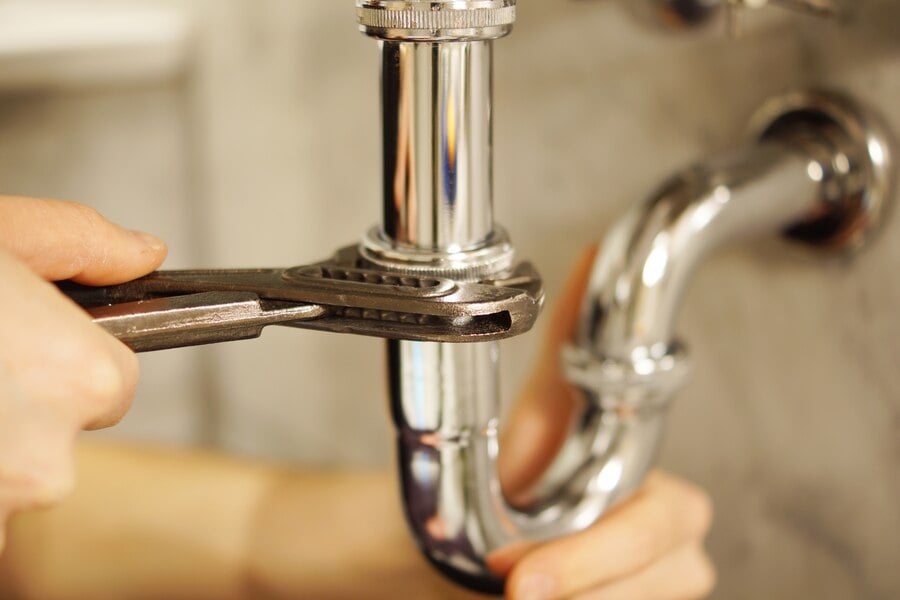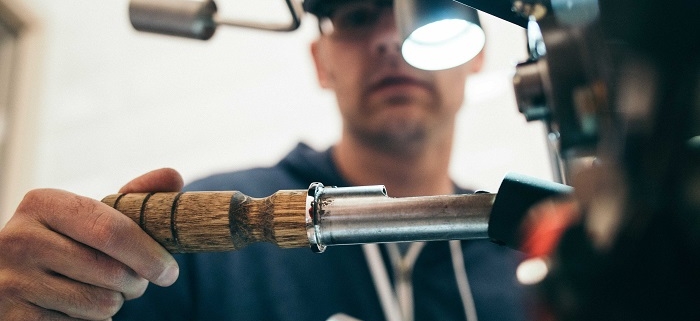What to Do When a Pipe Bursts in Your Home?
Even if you only play the scenario in your head, a burst pipe seems like a huge problem. It’s a major inconvenience that can cause vast damage to your house. This guide focuses on what you should know about dealing with a broken pipe in your home. It’ll also reveal some tips on preventing pipe bursting since it would be best to stop this from even happening. Here’s what you should know about pipe bursts!
What Causes Pipes to Burst?
Here are the main causes of a pipe burst in the house:
- Freezing. Low temperatures can lead to many problems that require home improvement work. Keep in mind that 32F is the magic limit. If the temperature goes lower than that, the water will freeze. The pipe bonds weaken, and when the heat increases, it breaks.
- High Pressure. It’s not necessary for water to freeze to face increased water pressure. Municipal supply could be at a higher pressure than your pipes can handle.
- Old Pipes. Nothing lasts forever, and pipes aren’t an exception. Their durability depends on maintenance, age, and other factors. If the water pressure bursts pipes, the reason could lie in how old they are.
- Clogs. Soap scum, hair, food, and other residue lead to clogs in your plumbing system. The first indicator is poor draining of your showers and sinks.
- Roots. You see a tree growing but don’t have a clue what’s happening underground. Roots expand toward moisture, making trees in the vicinity of pipes a threat.

How Do You Know If Your Pipes in House Burst?
You can try to locate the leak based on the following signs:
- Water pressure changes. A leak disrupts the paths of water through the pipes. If you notice you can’t get the pressure to the desired level, it could be a sign of a busted tube under the house or inside the property.
- Watermarks. Water damage on walls and ceiling indicates a pipe burst in the house.
- Standing water. If you have exposed pipes, you might even notice puddles on the floor.
- Water discoloration and odors. Does the water you use smell weird? Is it not clear, but has other colors? It could point to rust or a burst pipe. It’s best to avoid drinking it until you resolve the issue.
- Strange sounds associated with water use. Do you hear something weird when you turn on the faucets?
- High water bills. If there’s no reason your bills would be higher than usual, it’s a sure sign of a leak.
How to Tell If a Pipe Burst Underground?
It’s harder to identify underground water leaks. However, some signs are similar, and here’s what to consider:
- Water pressure decrease
- Noticeable holes in the ground
- Cracked pavement sections
- Increased water bills and overall use
- Dirt in the water in your plumbing system
If you suspect a burst pipe underground, you need to contact plumbing professionals. Best plumbers in Las Vegas have specialized equipment to identify potential leak spots.
What to Do If Pipes Burst?
You confirmed that you are dealing with cracked pipes, but what’s the next step? Here is what you need to do:
- Turn off the main water supply. You don’t want to cause a bigger problem and risk that the pressure bursts pipes in other areas. Turning off the main supply also makes the problem easier to solve since you only have to deal with the water in the system.
- Call a plumber. It’s always better to call a professional. They can locate a busted pipe under the house and resolve the issue before it turns into a bigger problem.
- Clean the water. If it’s possible, remove excess water from any unwanted locations. Cracked pipes will cause some damage, but try to keep it minimal. You can contact construction professionals for any repairs once you fix the pipes.
- Drain faucets. The next step is to eliminate the water in the supply. That includes turning on the faucets, flushing the water in toilets, and deactivating the water heater.
- Let in warm air. Are frozen pipes your problem? You need to heat them gradually, and you can begin by using your AC to increase the temperature. Hairdryers are also a common method to heat the pipes.
- Keep doors open. This is another way to boost warm air circulation and heat the pipes.
- Repair sleeve. You can use sleeves on holes to secure a temporary fix. It ensures you can use the water until the plumber comes, but it’s not a long-term solution.
- Rubber, wood piece, and clamp. It’s the alternative method of fixing the issue, but make sure to replace the pipe as soon as possible.

Tips on Preventing Pipe Bursting
Prevention is the best medicine, so here are the tips to preventing pipe bursting from happening:
- Make sure the water faucets are running. If it’s freezing outside, keep a single faucet running on low pressure. The movement of water is what might reduce the risk of freezing.
- Check if cold areas receive enough warm air. You need to secure warm air circulation to prevent pipes from freezing. A copper pipe is particularly sensitive to cold temperatures.
- Don’t close your cabinet doors. This can help heat the pipes below the sink during the winter.
- Remove the hose from that faucet in the garden. The water in the hose will get frozen first, rendering it unusable.
- Place heat tape. It’s a unique product that helps keep the pipes warm during the winter.
- Identify cold air leaks and seal them. If you notice cold air is coming into your house, seal those gaps. It helps keep your home warm during cold days.
- Maintain optimal temperature. You don’t want the temperature level to go under 32F in any area.
- Contact an expert plumber. Professionals use a pipe cutter and all other necessary tools to identify and fix the leak.
Do you suspect a pipe leak? You can contact Las Vegas general contractors to help fix the issue and ensure everything looks as good as new!





